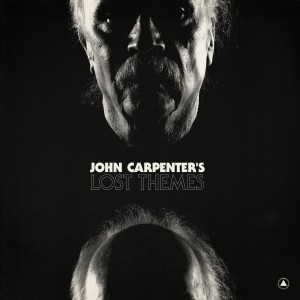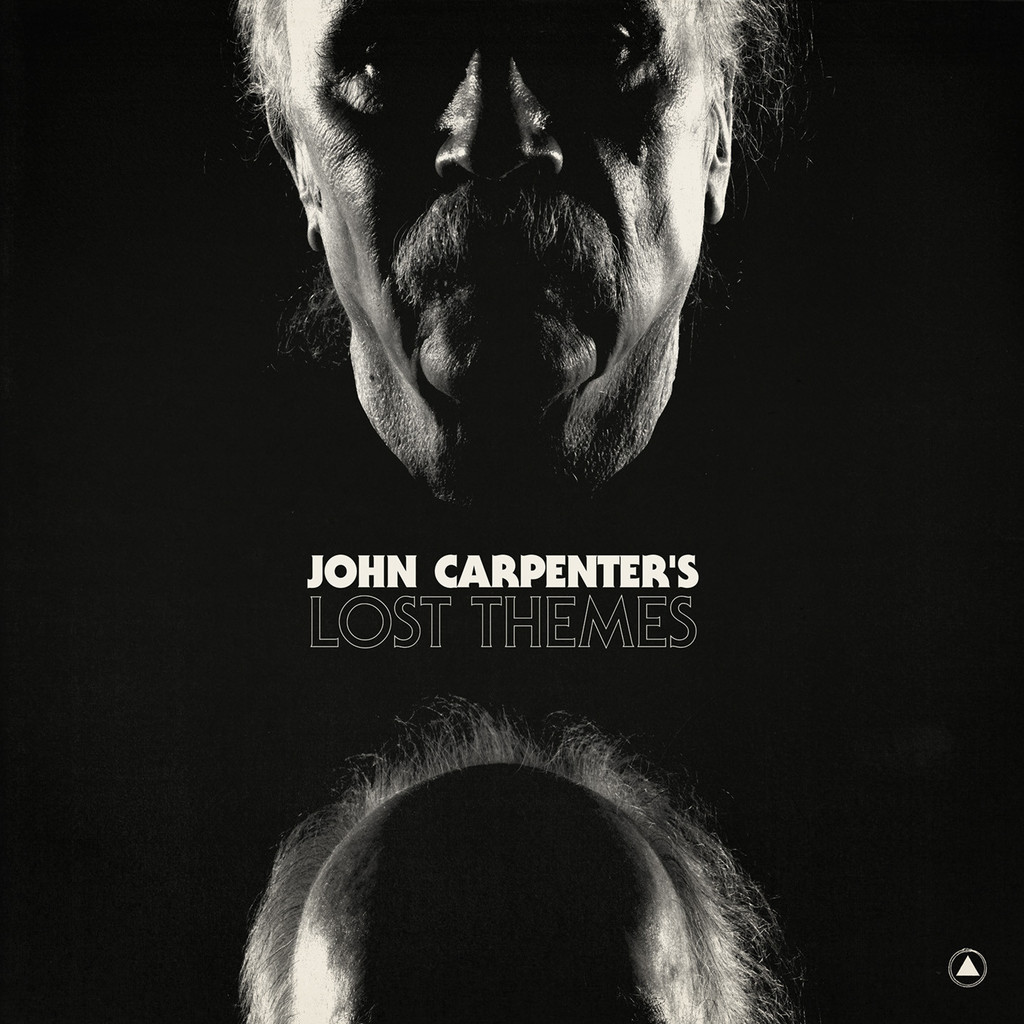The Breakdown
John Carpenter colored at least two generations’ dreams in burnt fall hues. Faded browns, oranges, yellows, and reds, topped with gray, overcast skies bled into our psyche and made us re-imagine Halloween in a whole new way. In a way where the fear we felt walking down the sidewalk in our Darth Vader costume holding a grocery bag full of Hershey and Nestle confections wasn’t something made up in our own minds and imaginations. It was something very real. The Bogeyman wasn’t just contained in a campfire ghost story; the Bogeyman was lurking just up the street ahead waiting for you. Carpenter defined a genre of horror and indie films with 1978s Halloween. From there he made films that would go on to inspire fans and fledgling filmmakers alike for years to come. Part of the appeal of his films, besides the very distinctive look(color, lighting, cinematography) were the scores he created to help push the story along. He used modern technology with classic touches to make haunted, eerie, and pulsating soundtracks. The Prophet 5 and 10 synths were used by Carpenter to create classic scores for Assault On Precinct 13, Halloween I,II,and III, The Fog, Christine, and The Prince of Darkness just to name a few.
oranges, yellows, and reds, topped with gray, overcast skies bled into our psyche and made us re-imagine Halloween in a whole new way. In a way where the fear we felt walking down the sidewalk in our Darth Vader costume holding a grocery bag full of Hershey and Nestle confections wasn’t something made up in our own minds and imaginations. It was something very real. The Bogeyman wasn’t just contained in a campfire ghost story; the Bogeyman was lurking just up the street ahead waiting for you. Carpenter defined a genre of horror and indie films with 1978s Halloween. From there he made films that would go on to inspire fans and fledgling filmmakers alike for years to come. Part of the appeal of his films, besides the very distinctive look(color, lighting, cinematography) were the scores he created to help push the story along. He used modern technology with classic touches to make haunted, eerie, and pulsating soundtracks. The Prophet 5 and 10 synths were used by Carpenter to create classic scores for Assault On Precinct 13, Halloween I,II,and III, The Fog, Christine, and The Prince of Darkness just to name a few.
For a certain portion of the music-loving population these scores Carpenter created(in the case of Halloween along with Alan Howarth) are as important as the films themselves. They define an era of horror film where auteurs like John Carpenter made what to the common eye appeared to be “cheap thrills” kind of horror. But looked at a little deeper there was more going on. These scores act as a time machine of sorts to back to those days. Before “the gorier the better” adage took hold. Much like those films, the scores were classics. Lost Themes is John Carpenter’s debut standalone album of instrumental tracks. Music for films never made by Carpenter. It’s a soundtrack to whatever your imagination can come up with. It’s every bit as good as you’d think, with only a few moments where it staggers a bit.
Lost Themes is filled with great, haunting moments. “Vortex” feels like an opening steadicam shot through neon lit city streets. The lights reflecting off puddles along the sidewalks as someone makes their way through an urban landscape dimly lit. “Obsidian” is a driving track that feels like a chase through the night. “Fallen” is melancholy and dream-like. “Purgatory” is menacing and mournful, while “Night” is arpeggiated menace. Every track is a single word title, and I think that works well for these songs.
Carpenter, along with his son who helps his dad out on Lost Themes, creates dark moods and aural experiences with a singular precision. Some songs suffer from at times a dated sound here and there. “Mystery” moves along nicely until “rock” drums enter the picture and add an element of Trans-Siberian Orchestra to the proceedings which slows down the songs initial tension. “Wraith” gets bogged down a bit towards the end with a guitar part that seems to have been pulled from a Savatage song from 1987. “Domain” sounds more like Australia’s The Night Terrors than John Carpenter, but these are just small issues. Nothing that bogs the album down too much.
Bands like Sinoia Caves, The Night Terrors, and Night Flights have been making synth-heavy records over the last few years that borrow heavily from John Carpenter’s scores and they do it well, without aping Carpenter too bad. More homage than anything else. But it’s great to see and hear the “Master of Horror” himself putting out a standalone record of original music. Lost Themes is both a throwback to classic Carpenter soundscapes and a modern take on synth-driven music. He may not be making movies like he used to, but if this album is any indication, he’s certainly not running short of creativity or artistic wealth. Not by a long shot.














No Comment